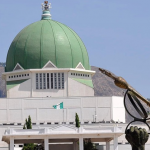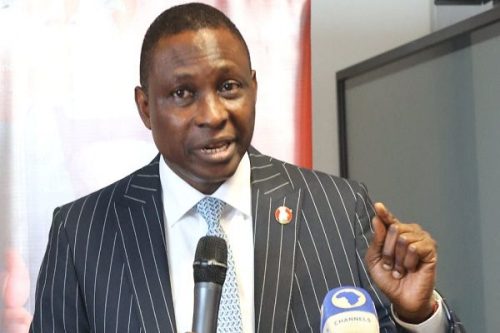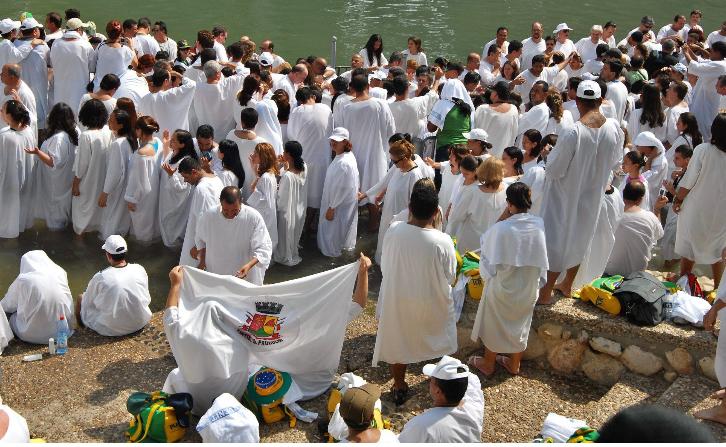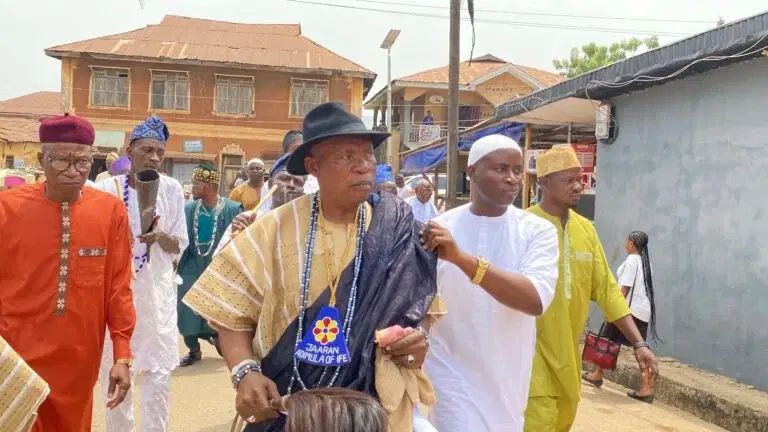FAAC controversy: Civil servants face bleak Easter unless…
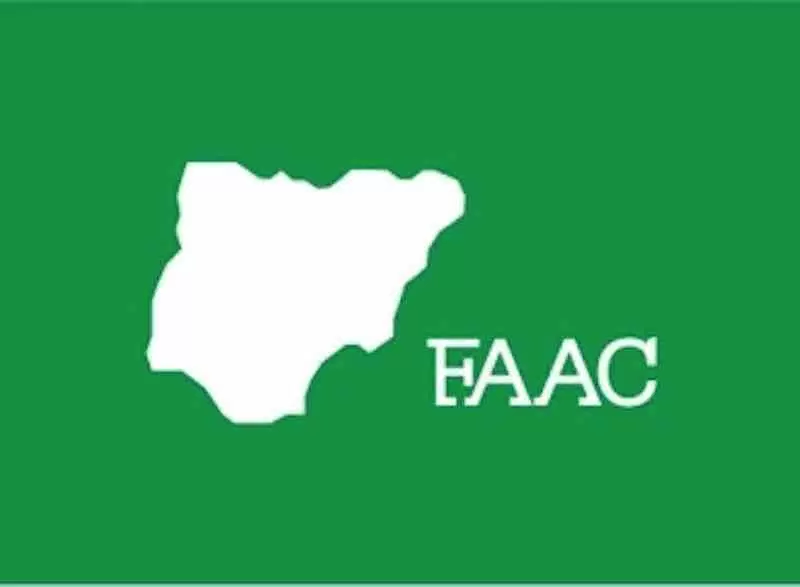
…We won’t distribute funds until NNPC remits accrued revenue-AGF
…Finance minister summons another FAAC meeting today
…FG, states, LGAs to share N647.3bn for February
Unless something urgent is done to resolve the inconclusive Federal Account Allocation Committee (FAAC), most civil servants in the country may have to spend the Easter celebration without salaries as the FAAC meeting on Tuesday failed to disburse funds to the three tiers of government over disagreement on the amount to be distributed.
The FAAC meeting, meant for the distribution of revenue to the three tiers of government was on Tuesday stalemated as the Nigeria National Petroleum Corporation (NNPC) under-remited oil revenue accrued to the Federation as at March 27, 2018.
The Accountant General of the Federation, Ahmed Idris, who presided over the meeting, said the FAAC could not disburse the allocation for February because the NNPC had failed to remit its full statutory revenue generated for the month to the Federation Account, insisting that until the NNPC remits the revenue, the FAAC could not hold.
But documents available to The Daily Times revealed that the NNPC had remitted a total of N52, 584,842,443.38 to the federation account on three occasions from two different accounts.
The NNPC in a letter addressed to the Director, Banking & Payments System Department, Central Bank of Nigeria, dated March 26, 2018 ref: GFAD/CBN/O&GRFN/18/003 titled “Transfer of February 2018 Crude Oil Receipts into the Federation Account with CBN,” stated that “upon receipt of this mandate, please pay into the Federation Account the Sum of N21,672,127,159.82 (Twenty-One Billion, Six Hundred and Twenty-Two Million, One Hundred and Twenty-Seven Thousand, One Hundred and Fifty-Nine Naira, Eighty-Two Kobo)” as settlement of November, 2017 Domestic Crude Oil Cost”.
Also, the NNPC in another letter bearing same date and reference number addressed to the Director, Banking and Payments System Department of the CBN, titled, “Transfer of February, 2018 Gas Receipts into the Federation Account with CBN;” directed CBN to pay the Federation Account the sum of N13, 481,404,990.28 (Thirteen Billion, Four Hundred and Eighty-One Million, Four Hundred and Four Thousand, Nine Hundred and Ninety Naira, Twenty-Eight Kobo).
While in the third letter addressed to same director, titled “Joint Venture Cash Call Fundinf for February, 2018,” the NNPC directed the CBN thus: “Upon receipt of this mandate, please pay into the CBN/JV Cash Call Account with CBN the sum of N17, 431,311,293.28 (Seventeen Billion, Four Hundred and Thirty-One Million, Three Hundred and Eleven Thousand, Two Hundred and Ninety-Three naira, Twenty-Eight Kobo).
Both letters were signed by Oluwaniyi O.J and Amunike MO.
The Daily Times further gathered that one of the controversies was that Production Sharing Contract (PSC) and Modify Carry Agreement (MCA) – PSC-MCA Royalty crude oil and gas is the Department of Petroleum Resources (DPR) royalty earnings paid in form of crude and gas by oil firms. The crude oil and gas are then sold by NNPC on behalf of DPR and the proceeds remitted into DPR’s JP Morgan Account on monthly basis.
According to available documents, the FAAC Sub-Committee noted that DPR had accounted for all NNPC’s lifting sales revenue due for payment in January, 2018 except Sterling Oil lifting valued at $6,166,200 with invoice number DPR/ROY/12?049/2016/.
But the DPR representative confirmed to the FAAC meeting on Tuesday that it was yet to receive the $6,166,200. Consequently, the Sub-Committee directed DPR and NNPC to reconcile the matter and report back at the next meeting.
Idris said: “Anything that has to do with the revenue is constitutional and statutory. We appeal to Nigerians to know that indeed we are sensitive to the issue; we are very sensitive to the fact that we are approaching festivity; the state governments as represented by the Honourable Commissioners of Finance are very sensitive to this issue. But again, we have to follow the constitution and the necessary laws for distribution of the revenues.
“And it is on this note I inform you the honourable members of the press and indeed all Nigerians that the meeting has not been concluded. And we will look at the revenues figures as submitted by the NNPC and reconcile such figures and then sit immediately and upon that, we will share the revenue immediately.
I sincerely feel that we have to explain this to Nigerians bearing in mind that public servants, workers in federal, state and local government levels deserve to have their salaries and all other commitment of government as it affects the three tiers of governance.”
Idris said that the decision was that of FAAC as represented by the Commissioners of Finance of the 36 states.
But our correspondent has obtained a summary of the Federation Account Revenue in accordance with the existing laws/statues and relevant revenue allocation formulae for the month of February, 2018 that would have been distributed.
According to the document, the gross statutory revenue of N557.943 billion received for the month was higher than the N538.908 billion received in the previous month by N19.035 billion.
There was an increase in crude oil export by 2.8 million barrels and an increase in average crude oil price from $57.71 to $63.08 per barrel resulted in increased revenue from export sales for the Federation by $194.39 million.
However, production still suffered shut-ins and shut-downs at various terminals for repairs and maintenance. There was significant increase in Petroleum Profit Tax (PPT) but oil royalty, import duty, companies income tax (CIT) and Value Added Tax (VAT) dropped considerably.
The total revenue available for distribution to the three tiers of government for the current month is N647.390bn.
Total oil revenue generated for the month was N441.203bn.
The 36 states Commissioners for Finance led by their Chairman, Mr. Mahmoud Sale Yunusa, had stormed out of the FAAC meeting mid-way and deliberated outside the hall before they later went back to the meeting where they made known their decision not to accept the proposed revenue available for distribution for the month.
Addressing finance correspondents on why the Committee could not distribute the available revenue, the Accountant General of the Federation, Ahmed Idris said: “It is on this note that I inform you the honourable members of the press and indeed all Nigerians that the meeting has not been concluded. We are working with the state governments through the Honourable Commissioners for Finance to resolve the issue as soon as possible.”
Meanwhile, the Minister of Finance, Mrs. Kemi Adeosun, has reconvened the FAAC meeting for today all in a bid to ensure the revenue for February is distributed to the three tiers of government to enable them to pay workers salaries especially as Christians mark Easter celebration on Sunday.
The meeting, which will hold today at the Auditorium of the Federal Ministry of Finance, will have in attendance the Accountant General of the Federation, Commissioners for Finance and Accountant-Generals of the 36 States and representatives of the NNPC, Federal Inland Revenue Service, Nigeria Customs Service, and Department of Petroleum Resources, among others.
The Minister has also called for an emergency meeting next week with the Group Managing Director of NNPC, Dr. Maikanti Baru, and key management staff over revenue payment into the Federation Account.
The FAAC meeting was inconclusive on Tuesday, necessitating the intervention of the Finance Minister.
But the Jigawa State Commissioner for Finance, Hon. Umar Namadi, told The Daily Times that his state has paid its workers’ salary since last week, adding that Jigawa State doesn’t have to rely on money from federation account to pay its wage bill.
The Daily Times further gathered that Lagos State and other buoyant states have also paid workers their March salaries.
The FAAC meeting was attended by representatives of Revenue Mobilisation Allocation and Fiscal Commission (RMAFC), States’ Commissioners for Finance and Accountants-Generals across six geo-political zones as well as representatives of the revenue generating and accounting agencies of the nation.


